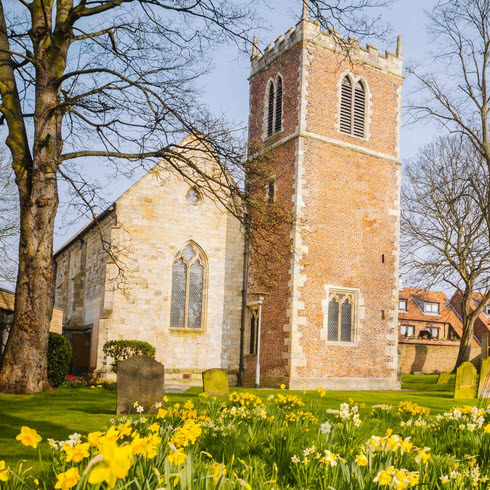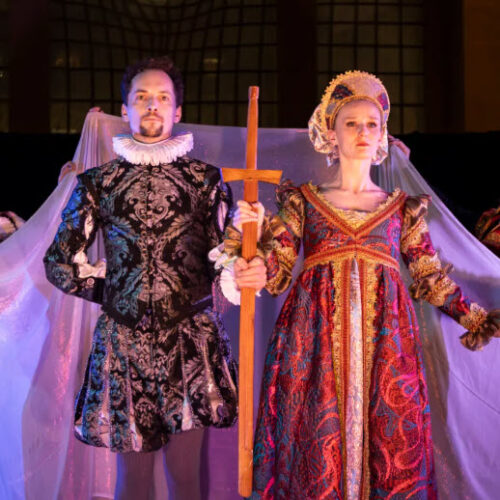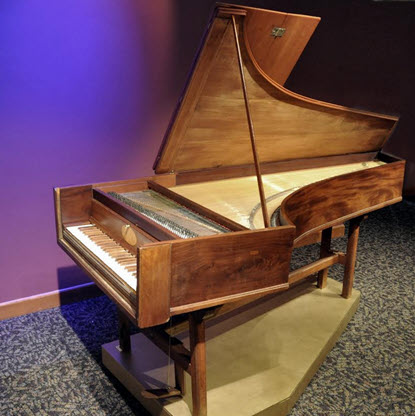by Kyle MacMillan
Published April 26, 2025
Chicago’s Newberry Consort revisits to a popular program, curated by Ronnie Malley. In the Realm of Osman: Music from the Early Modern Ottoman Empire and Beyond‘ spans five centuries of music by Turkish, Greek, Armenian, Sephardic, and Persian composers.
In our increasingly intolerant times, the program addresses what it’s like to live in a pluralistic society
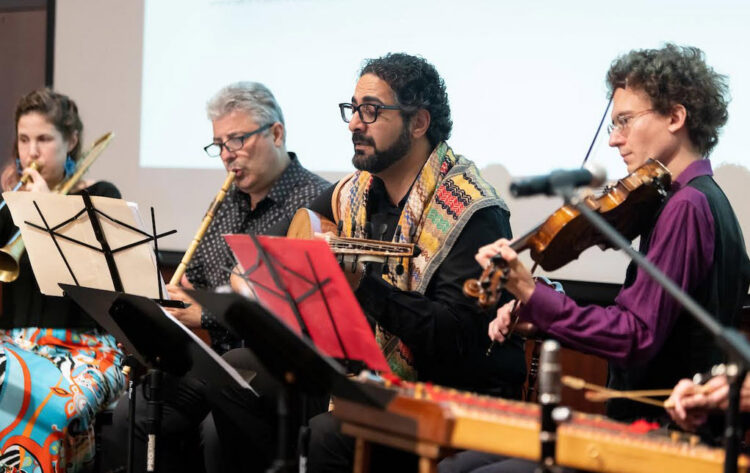
Being a Palestinian-American in today’s highly charged political climate can be difficult, or scary, since expressing support for residents of the Gaza Strip can be seen as pro-terrorist, anti-Israel, or even antisemitic. Ronnie Malley remains unbowed.
The lifelong Chicagoan tries to set aside politics and pour his energy into music, believing that the arts can transcend ethnic, cultural, and societal differences and help bring people together today — just as it has for centuries.
“All I can do is change what I have the power to change,” Malley said in a recent interview. “If I’m getting too upset and overwhelmed, that is actually giving the bastards the satisfaction to do what they are trying to do.”
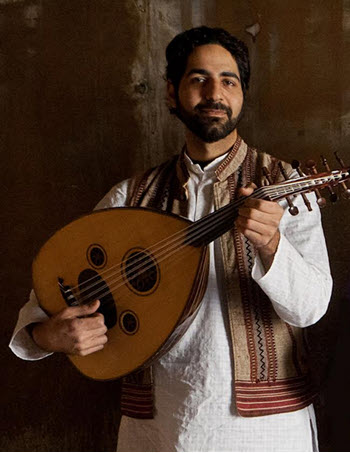
Malley plays multiple instruments, including the oud, a short-necked plucked instrument, ancestor to the lute, that originated centuries ago in the Middle East. He likes to focus on the cross-pollination of styles and approaches in historical music, especially in cultural melting pots like the Ottoman Empire.
That vast state existed under various forms of rule from the late 13th century into the early 20th, ultimately broken up by the geopolitical order that arose after the First World War. At its peak, the Muslim empire encompassed a large swath of Southeast Europe, the Near and Middle East, West Asia, and North Africa. The Ottomans successfully pushed their way up the Danube, almost reaching Vienna in the 1680s.
The Ottoman Empire will be the focus of concerts, curated by Malley and presented by the Newberry Consort, May 9-11, in three venues across the Chicago area. Titled In the Realm of Osman: Music from the Early Modern Ottoman Empire and Beyond, which will feature works by composers from the 16th through the 20th centuries who were Turkish, Greek, Armenian, Sephardic, Persian, and more. The concert will then be streamed, June 2–23, with a $25 suggested admission as well as a pay-what-you-want option.
Even though modern-day Turkey rose from what had been the Ottoman Empire, Malley explained, it is a mistake to conflate the two and to think of the latter as being monolithic. “What we see in Turkey today is very small portion of what the Ottoman Empire was, which encompassed many different cultures,” he said.
Malley noted, for example, that even though his grandfather and great-grandfather lived in Palestine — parts of which are within Israel today — they both spoke Ottoman Turkish because the region was part of the Ottoman Empire at the time.
Just as In the Realm of Osman attempts to broaden understandings of Ottoman music, it also expands the notion of what constitutes “early music.” In Europe and the West, people had long used the term to describe centuries-old works that were almost exclusively created by Europeans. But that mindset is changing rapidly as high-profile ensembles, like the Newberry Consort, have come to embrace historical — often rediscovered — music and traditions from everywhere in the world.
A Career of Banking and the Oud
That Malley, who grew up in the southwest Chicago suburb of Oak Lawn and attended Oak Lawn High School, would become a musician was all but inevitable. The 47-year-old’s father led a diverse band that played Middle Eastern and North African music and included a Lebanese singer, an Iraqi-Assyrian guitarist, and a Syrian-Assyrian violinist. The band performed in clubs, including one on the North Side in the 1980s called Kleopatra, owned by his father and some of his bandmates. They gigged for weddings and other events. (That group disbanded around 1990 but Malley still plays in what they call the Malley Family Band.) “I grew up in that environment, just seeing music everywhere,” he said.
His father and brother were both drummers, and he started out playing percussion in his school orchestras before learning other instruments. “I said ‘I think one of us needs to play melody,’” he recalled with a laugh, “so I picked up the guitar at about the age of 10, and by the age of 12, my brother and I were playing on stage with my dad.”
His father later asked if Malley could add keyboards to his skill set; he began piano lessons and was fluent by 16. A year or so later he took up the oud (or an instrument resembling an oud), but, initially, “felt like an imposter playing Middle Eastern and North African music” on a non-authentic instrument.
Yet it was the oud that opened him up to a whole new historical realm, especially the music and poetry of Andalusia, the southern-most region of Spain that was once part of the Roman Empire and came under Muslim control in the eighth century.
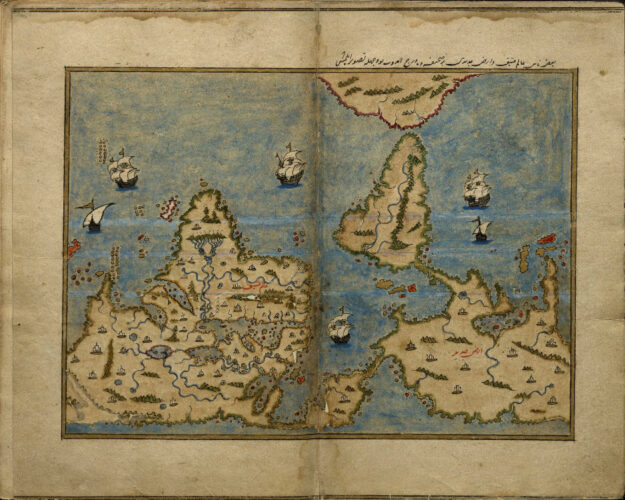
Despite his strong interest and talent, music remained a sidelight for Malley as he pursued a corporate career in banking and real estate. Then, around 2004, he watched a documentary on the making of Pink Floyd’s 1973 album, Dark Side of the Moon. It opened his eyes. “I thought, why do I need to spend eight, 10, or 12 hours a day doing something that I cannot stand just because I need to make a living?” he recalled. He realized he had life options, and began to apply his business acumen full-time to the arts, not just performing but also working in musical production, film, and theater.
‘A History of the World’
After earning a master’s degree in Hebrew in 2022 from the University of Chicago, he went on to pursue a doctorate in ethnomusicology, studying primarily the music of Middle East, North Africa, and medieval Spain. “It’s important to use things like music and storytelling to help us understand history a little bit better,” he said. “We can learn what it was like to live in pluralistic societies, which is entirely what In the Realm of Osman is about.”
In 2017, Ellen Hargis and David Douglass, then Newberry’s co-directors, approached him about performing music of the Sephardic Jews who fled Spain and Portugal in the 15th century and settled in places like North Africa and Western Asia. Then, in 2020, Malley assisted Apollo’s Fire with a program and recording titled O Jerusalem! Crossroads of Three Faiths, that it is bringing back in 2026.
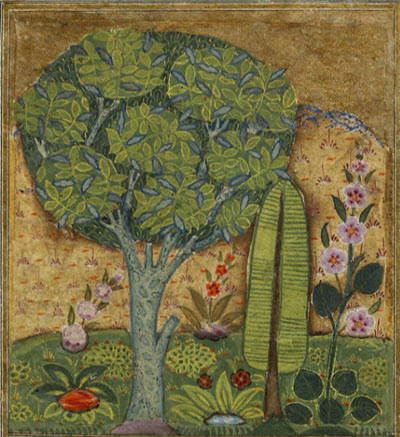
By working on these programs, Malley said, he belatedly “started to realize that a lot of the music I’m playing is on period instruments, and I can call some of this ‘early.’ I started to see the world of early music as outside the scope of what has been defined to be ‘European’ music.”
In 2023, the Newberry Library, an independent research repository founded in 1887, asked the Consort to put together a special program drawing inspiration from an Ottoman manuscript in its holdings called the Tarih-i Yeni Dünya (History of the New World). It dates to around 1600 and offers Ottoman accounts of the Spanish conquests in the Americas as well as hand-drawn maps of lands all over the world.
Liza Malamut, who was appointed the Consort’s artistic director a year earlier, had little knowledge of Ottoman music; Hargis suggested she talk to Malley. The two met shortly afterward, and Malamut was immediately impressed by his broad historical and practical knowledge and collaborative spirit. She put him in charge of picking both the music and musicians for the concert.
Taking part was Malamut on sackbut (an early trombone) and Malley on oud, joined by Eve Monzingo on sandouri (a Greek hammered dulcimer), Naeif Rafeh on the ney (a Middle Eastern top-blown flute), plus violinist Sam Hyson and percussionists George Lawler and Oya Dubey.
Malley, who loves this sort of research-performance project, was prepared for the task in part because he had worked with Chicago’s Turkish community, performing at Turkish festivals and cultural events, and had music books and scores relevant to the Ottoman Empire in his own library.
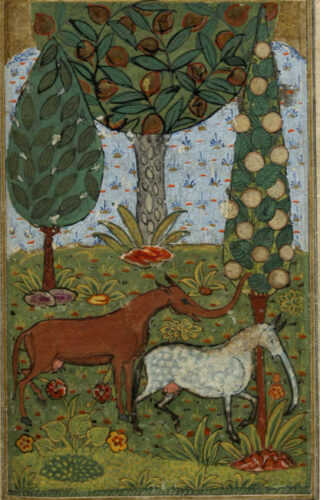
Malamut described the resulting concert as a “joyful experience” in every respect. “The musicians’ vibe was great,” she said. “It was standing room only. Tons of people came that I’ve never seen at any early-music concert, people who found this kind of music really meaningful. We left feeling that we wanted more people to hear this [program].”
It was thus a no-brainer to bring back In the Realm of Osman as part of the Consort’s main concert series. All the musicians from the original concert are returning with the addition of Firas Zreik on kanun, a type of Middle Eastern lap harp.
Malamut expects the upcoming Ottoman concerts, with Malley’s cross-cultural insights, to be well attended and attract people who don’t often attend more traditional Consort presentations. “We think of early music and we think of Western Europe,” she said. “But the Ottoman Empire was so vast, and it covered so many territories — lands that most people don’t think of today when programming early music.”
Kyle MacMillan served as the classical music critic for the Denver Post from 2000 through 2011. Now a freelance journalist in Chicago, he’s written for the Chicago Sun-Times, Wall Street Journal,Chamber Music. For EMA, he recently wrote about Restoration vs. Conservation of historical instruments.

